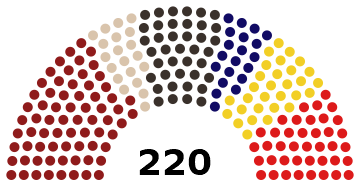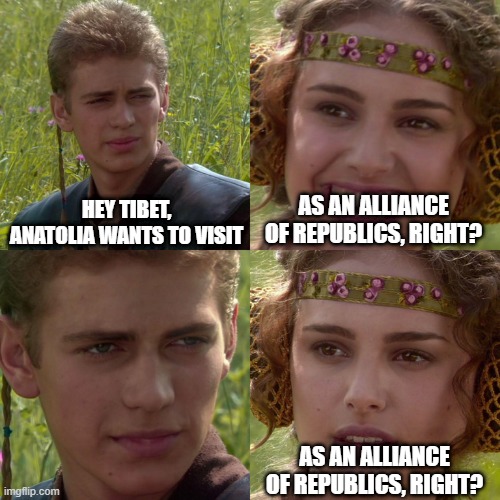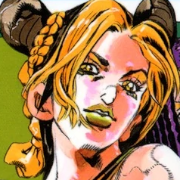|
Chapter 82: 1764 to 1775 - Two Revolutions Kang Jae (Hangul: 강재 ; Hanja: 姜再); (?-?) was a pseudonymous writer and pamphleteer who was active during the early years of the Tibetan Revolutionary Republic. Her short, aphoristic writings result in an impressionistic analysis of different aspects of Tibetan society in the tumult of the revolutionary period. Although partially influenced by her own traditional neo-Confucian education, she writes a broadly sympathetic portrait. As any Anatolian will be proud to tell you, Tibet was not the site of the first revolutionary republic. That distinction belongs to the Anatolians. I often had tea with the Ambassador from the Anatolian Republic, Avrakotos, in my capacity as an official, and he was very proud of his profession and country. He dresses plainly, not taking on anything exorbitant that he might have worn as an ambassador, and I have the impression that he knows many things that he refuses to discuss. The word geming (革命), first found, I believe, in the I Ching, once referred exclusively to the withdrawal of the mandate of heaven and the foundation of a new dynasty. The revolts of Tang of Shang and King Wu of Zhou, and then all the others after that. But the phrase now has a new and different use to it; it refers to the dissolution of the monarchy itself, often by a popular uprising. Where the fall of one dynasty in the past may have been followed by its replacement by another dynasty, now a popular uprising hopes to dissolve completely the old social order, the old laws, the old system of government with all its oppression, terror, and greed, and replace it with a more just one. This is what they call revolution.  The Anatolian Republic had only one chief minister in its six decades of existence - Tefere Assefa Abateid. In every story I have heard, he is a moral and wise head of government. He is a devotee of the gods of Bön - animist in character, paying homage to mountains and seas, consulting if he likes a loose collection of scriptures. They do not commit sacrifices as much as they used to, but they still are to be found. Every few years, elaborate ceremonies are held where his administration is affirmed, and any challenges to the reign peacefully addressed. As far as I can tell, one of the advantages of this government is that opponents do not have to be murdered. They are left alone and acknowledge a reign peacefully. Secondly, there are ways that delegation of power to the provinces are addressed, and issues can be petitioned to local officials first.  The republic he presides over is one of many different peoples; some part of the republic willingly; others by conquest.  It is also a country that is not content to leave itself alone, assured of its own virtue. For nearly five decades under his stewardship, he has almost continuously launched a series of campaigns to overthrow foreign governments abroad -- at first against tyranny, then for liberty, and also as a safeguard for property.   In the first years of my stay in the Tibetan Republic, the efforts of the government were directed towards retaining what it still had: establishing an administration and providing basic services and lines of communication meant more than so many slogans and banners. While I know that not every Tibetan reads the Four Books and Five Classics, many would agree on the stabilizing power of rituals and calling things by their right names.  The old order had been disestablished. In a grand ceremony, many old relics of empire were destroyed, or portioned off, and the members of the Tshogdu - the National Assembly - formally declared that the empire was destroyed and would never return. Plaques, banners, paintings, robes all sacrificed along with so many draft animals. Behind them, the Great Pyramid of Lasya stood untouched, immobile, in the distance. In the older times, I think around the time of the Sixteen Kingdoms, when a dynasty was overthrown and replaced, the capital itself was burned down and reestablished; I glad that is not the case here. If I had to characterize a republic by analogy, it would be this. Consider the practices of the Daoists who preach about immortality and superhuman abilities. As anyone, they promise, can exercise and be disciplined, and anyone can control the flow of vital energy, or qi so anyone can gain the discipline and cultivation to rule themselves. This is not a power to be given to a select few, to be totally concealed. A country where everyone has that right. The writers and elected leadership of this country tell me of their different ideals, and all of them involve some common social bonds between people, and very few covet a total return to the rigid structures of the past. Water spilled cannot be so easily put back.  The city of Lhasa itself is suffused with talk and rumors. Spend time in any teahouse and they'll all talk politics if you let them - rumors and hearsay around every dice game. Read any of the newspapers, posters, or pamphlets, and you can find one of a dozen stories about where the world is. Today, I am told there is a plot by the Anatolians to destroy the republic. Last week, I was told that it was the Confucians poisoning the groundwater and spreading pestilence through bad air. By the grace of heaven, what a country! But I should not complain all the time. It was as if a man who was mute for twenty years could finally speak again. After all that violence, so much of it unnecessary, they would talk of anything and everything. I find a bit of hope after all this. Human nature is basically good, I must tell myself.  There are some revolts led by the remaining aristocracy, intent on retaining their privileges and setting back their old order. And all that is left of them are broken halberds in the sand.  Of the current leadership of the Republic, I will describe it thus: the current head of state is a Mr. Tolun Fuyuan. He is an intriguing figure - mistakenly raised as a girl. He left his home at an early age, refuses to talk about his youth, and he has so refashioned himself into a figure of power and military prestige. He has thrown himself headlong into acts of military valor. He was said to be one of the first to storm the palace in the first heady days of revolution, and he is always out on horseback ready to meet every challenge or head a cavalry charge, despite his age.   Art by Pacho Another prominent figure is Lasya Arslani, head of the political party the Lasya Party - this is because both the party was named after the great empress of old, and she took the name later. This would not be done in China because of the old name taboo, but Tibet is assuredly not China. I had the chance to meet her briefly. I had rushed away from a poetry group to find the party leader on the way back from a hunting trip. She was rather tall for a Tibetan, and I was able to walk right up to her - protocols were not needed in this case. I asked if I could ask her a personal question, one that might be intrusive. "You do know I have a gun with me, yes?" she replied. I hesitated, then asked - "what did you want from the revolution? From the republic?" She looked off into the distance, the light from the sun illuminating half of her face. "To escape the shackles of my birth," she said, "and to fashion myself after heroes of old," before rushing off. Both Tolun Fuyuan and Lasya Arslani are alike in this regard - they tell the grandest possible stories of reinvention, perhaps in the cause of making themselves believe it.  The government in Lhasa has one head of state, who has a council of advisors; below them is a national assembly, the Tshogdu, which is composed of several factions.  There is no clear majority among any of these factions in the Tshogdu, so there is some contention and need for negotiation among major parties and groups. The largest single faction is the Lasya Party. There is also the True Followers of Lasya Party. There is the National Alliance of May 1756, with a party delegate named Lasya. And so on. Names can only be names, and they come in cycles, name poems, or other fashions. But the name Lasya is still a sign of power or heritage, whereas to so many others to the east or south it is a sign of terror.  The news about the sudden ascent of the Lasya Party, the True Lasya Party, and with the Golden Grasp as a coalition partner caused some shock and concern among Tibet's neighbors. Lasya Purgyal, the great steppe conqueror who had arguably mastered perhaps the most territory and suzerainty over the most people in human history - though she had lost much of it shortly after. Many Tibetans were no doubt happy to see this invocation of a historical moment, though her reaction led to shock and dismay from TIbet's neighbors. If I lived in the remaining Chinese kingdoms, one might as well have named a political party after smallpox, that is how the name is regarded. Lasya Arslani, in one peroration, spoke of heroes of old. This revolution takes the costumes and heroes of the empire, expresses itself in the name of the Heavenly Republic. The name of Empire looms so large that few may yet escape it; and few may think of the tasks of the future. I believe in the principles of rational investigation. I am no mystic. I most reject ideas where I have no proof of them, of recurrent birth and the cycle of action beyond death. But on the other hand, I do remark how fervently these beliefs are still held elsewhere. She disturbs some unquiet ghosts.  But back to my point. If I could be crude, I would group the political factions of the Tibetan Republic into three broad categories. The first I could call the Lasyaists, composed of the Lasya party, the True Followers of Lasya - expansionists, military adventurists. The Golden Grasp might also fit in this category. This is a long and ongoing tradition in the politics of the empire - foreign powers are thought of in terms of what best to loot. This is a tradition going back to the old empire, and incorporates the majority of emperors from Gyalyum the Benevolent onwards. The second is Datong (大同), named after the concept of Great Unity and the ideal state. This includes such factions as the National Alliance of May 1756, or the Mandate of Heavenly Victory. There is an antagonistic relationship between various Tibetans and China. Ever since Gyalyum the Benevolent incorporated bits of the Old Tang Code in building up here new state, there has been a bit of covetousness towards China on the part of Tibet - its most gratuitous example was were the last Empress Tashi declared herself empress over both China and Tibet. The third is the Chagpori faction, named after a rocky outcrop in Lhasa and the site of a medical college where writers and philosophers often met. The Red Mountain Party might fall into this category, though they are named after a different mountain. They are more in favor of experiments and moving forward step by step, of fashioning a new kind of government. I admit personally that I am sympathetic to them and their aims; if I still follow anything from my teachers it is the principles of rational investigation. But in the tumult of revolution I do hope these ideas may flower and bloom.  And for all this, diversity of opinion was mistaken for disunity and indolence; petty kingdoms sent their insults.  It had become clear, at least in the minds of some, that the Republic needed to not only retain but expand upon the territory of the Empire in order for it to act against tyranny. The southern coast was necessary for its ports, and its precious iron. And for others, it was a monarchy, and that was enough reason to destroy it.  The opposing army was scattered,  and in less than a year, the republic had regained much of the southern coast along the coast of the Andaman Sea. What was left of the kingdom was to offer tribute.  The state was able to make payments to its creditors.  Other revolutionary factions, such as the National Alliance of May 1756, had demanded more great academies to cultivate the training of the people, and this was accomplished.  But the Republic had its own scandal and rumor. Tolun Fuyuan's own adoptive son had become a lout, making a fool of himself and causing much trouble for his father. After too many drunken embarrassments and misguided affairs, he was soon disowned.  The campaign along the Burmese coast was a success; the Republic another fortunate event to keep the people contented. Destroying one of the last Chinese dynasties would be a step up. And who better than Jin, still run by those Purgyals who had broken away from the reign of Lasya the Holy over four hundred years ago?  The war started well. The Tibetans had advanced into Shanxi, carving a space out of so many competing warlords.  But- the Anatolians had come to find that interventions for the cause of liberty in China were becoming a very rewarding business; vast fortunes were made out of the cause of beheading local tyrants and expropriating farms.   The Jin, the last Purgyals, had made a deal. They would become tributaries of the Anatolians, swearing obedience to them. The last Purgyal emperor in power anywhere so swore off his power to a distant place he had never seen. The Anatolians, stopped their war against Jin, and then in an instant, joined with their subjugated enemy to go to war with the Tibetans. The two republics were at war. When I heard the news that had filtered over, I had gone over to the fine old manor house that the Anatolians were still using for their embassy. Most of the staff were in about as much a state of shock as the other inhabitants of Lhasa, but Avrakotos only shrugged, and kept throwing his letters into a roaring fire. He gave no explanation to my queries, and I made sure to leave out the back as the crowd was throwing stones through the windows. One might first have imagined a coalition of chiefdoms, clans, and monarchies to rise against the Tibetan Republic. The old and established governments of the region may have launched a great alliance to contain this new threat. Instead, we find only a competition between revolutionary republics.  Don't they have their own porcelain and silver, why do they covet Tibet's?  While the Tibetan army could still rout the Jin, as they had done before,  the Anatolians had over-matched them.  More of them. Overwhelming. The army was in a poor state after so many years of revolution.   It was said that Tefere Assefa Abateid himself had come over, as if to vanquish the republic himself.  The Tibetan government, still so divided on matters of governance, had to respond more quickly.  A miracle occurs at Taozhou. Hope against hope.  But the cities further and further west began to fall. Kunming, untouched for decades, fell.   Tibet drew from all its ancient reserves and sources of power. The monastic order of the Knuckle Slammers - claiming to be distant heirs to the arts of warfare as practiced by Gyalyum the Benevolent, offered up their services. The Republic continued to draw from these ancient and monarchical institutions to keep itself alive. It was as if they had stepped out of one of the histories that I had read, or something from the fabled Secret History of the Purgyals.  For the army was desperate, and they needed what assistance they could muster.  The news soon reached Lhasa that nearly all of mainland China was now under the direct or indirect control of the invading armies; it had happened almost too quickly for any response to take shape. There was a state of tension but not panic in Lhasa; many feared that the plateau itself would be next. The little pieces on the map told part of the story. kindness - ready to share stores and direct each other to safe havens.   The Tibetans fought on, at Langzhong and Xining, just past the very edges of the old empire in the days of Gyalyum the Benevolent or Songtsen Gampo. If the war was said to be lost, they did not know it. The Tibetans sang their songs as they marched through Lhasa on the way out, months before, I recall the flutes made of human bones and drums made of skulls, as a reminder of mortality and the impermanence of things. To them it was customary; I blanched. I decided that of course I would accompany this army as an observer and see their battles myself.  In the south, the allies of Anatolia advanced at Mawlamyine. More fear and uncertainty. The bad news kept coming, and nobody knew where to make sense of it all.  Was this republic really to be humiliated for the sake of cheap cloth? Are we all going to be bookkeepers of some distant company?  The Sikyong of the Tibetan Republic, all the while, had gained the reputation of an embezzler and a corrupt minister. Hardly a good thing in peacetime, a disaster in wartime. Confidence in the republic had faded even further. With some fear in my heart, I went out and took a viewing point at the mountain grottoes near Tianshui - an elevated site where I could see the battle. From a distance, it looked almost beautiful: the armies marching in neat rows, the serrated banners waving in the wind, and the steady thrum of drums and the whir and whistle of cannon fire. Some of the cannon emplacements were closer to us, you could feel them in your bones. Before the battle, over tea, I had read The Life of Qian Chuan, an odd little book that had some extracts from the campaigns of Lasya the Holy. A rather sensational story but one that portrayed some of the grandeur and violence of her campaigns. The mood among those of us watching the battle was at first one of excitement. And excitement gave way to uncertainty, then to terror.  The armies of the republic marched onward to their deaths, marching as if they did not know they were defeated. The head of the Anatolian Republic said to be watching the battle from another hilltop and seeing history go his way.  The Tibetan Republic would be made to bear yet another humiliation. The loss of some territory in the north to the Mongols and the loss of Yunnan to a Yi state - a republic, of course. Not the end of the world, but still another shock after so many years.  In a few months, that Republic of Yi would soon find itself sacking the great monasteries of the Sacred Hierarchy. Enter a burning house and steal the contents. And so, it seems all heaven and earth changed places.  The great empires to the west too start to lose their grip - the Tsalagi holdings in Awiropa crumble, and Hualanitstlan has its moment again. The window opens, will it again be shut?  The revolutionary government continued to assign blame to foreign spies, real or imaginary,  and its smaller neighbors, even little Taungoo, refused to acknowledge its legitimacy.  But the Republic yet survives. Now the world is unfolding before my eyes. Any wisdom or truth may come only after the event; the dynastic histories are always written after the dynasty falls. The transition from one stage of history to another is not so clear and easily defined; the old story has failed and there is nothing certain to replace it at all. And in moving forward that is what comes next with no history book to guide them exactly, only in fragments or half-remembered dreams. I want to sleep for ten thousand years. I feel that I am a speck of dust that in the night has fallen on a map of the world. I do not know what will come after. But the Republic yet survives. THE WORLD: 1775 
Kangxi fucked around with this message at 05:10 on Sep 28, 2021 |
|
|
|

|
| # ? Jun 1, 2024 03:42 |
|
"Ohh here come our Anatolian friends... friends? FRIENDS!?"
|
|
|
|
Can't believe the eternal president wanted an armed pilgrimage
|
|
|
|
wow those border pomegranates I mean, we voted for this for sure, but things are not going well.
|
|
|
|

|
|
|
|
Considering what happened when we tried to turn Al-Andalus into a republic, I think Tibet's gotten off pretty light.
|
|
|
|
No one can deny that Al-Andalus had the greatest revolution of all
|
|
|
|
loving Anatolians. They don't have a real republic, they just call their monarch a Grand Vizier.
|
|
|
|
You know, losing the Republic Fight just means we haven't given enough power the militarists. More armies, more guns, more people to safeguard the republic.
|
|
|
|
The Nations of the East are like so many twigs, easily broken. But if we bind them together with a strong military, under a single flag, from Sri Lanka to Kamchatka, they shall be a single unbreakable bundle!
|
|
|
|
please. we need to spend some time rebuilding and strengthening our country before rushing off into some senseless conflict. we can’t solve every problem with militarism.
|
|
|
|
Or we haven't tried enough militarism to solve our problems, have you considered that???!
|
|
|
|
BANG THE DRUMS. We can only solve losing a war by doing more war. Since clearly we didn't grind enough lower level wars.
|
|
|
|
VOTE: 1775 (Part 1) The republic has inherited the debts and enemies of the empire, and by now it has instituted only a few solutions and improvements. Revolutionary proposals will have to avoid the problem of losing further territory and to maintain the survival of the republic. The most difficult time for a bad government is when it has decided to change.  Jurists and scholars have enumerated codes of laws based on principles of their universal application; that a system of laws may be established on the principles of benevolence and equality for all. One of the most enthusiastic scholars has produced a list of human rights that must be protected for all citizens; although some caution him that enforcement of these ideals is not yet guaranteed.  Vote for one of the idea sets shown above. The one with the greatest vote total will win.  However, there are some problems which have dogged the creation of a new system of government -- the problem of how stable a government should be, and how to avoid the collapse of the republic into another dictatorship, as what happened to the last republic. The arguments are intense. The Sikyong sits in the corner and watches and fans himself in the summer heat, while a parliamentarian rings a bell to stop the more intense arguments.  On the one hand, A) short terms of three years are proposed to limit the power of the executive, and allow for more frequent elections.  On the other, B) long terms of five years had been set forth so that longer policies can be maintained, and that the logistical problems of reelection do not snarl up the work of government.  Finally, there is the 'Muisca' proposal of C) sortition, named after the long-lived and stable Muisca Confederation, where rulers are chosen for lot by an elaborate system, and yet rule for life. Vote for A) Short Terms, B) Long Terms, or C) Sortition.  Additionally, there is the problem of how to administer a republic that is so large; there are vast swathes of territory that have perhaps a few thousand pastoral nomads living in them, and old provinces that have more people than neighboring kingdoms. Decisions had been made by fiat from some revolutionary committees in Lhasa; that will not be enough if our aim is a more representative republic.  The first proposal is that A) provincial governments would elect their own leadership and those representatives would form a central government - this would prevent too much power from being held in the central government.  On the other hand, the old borders could be abolished and rewritten entirely by committees in Lhasa, in order to permanently disrupt the power of local elites and counter-revolutionary aristocrats. An official bureaucracy, after being given civil service examinations, would administer the separate provinces.  Finally, there is a proposal to give greater power and autonomy to so many separate states, where each of them has their own independent financial, domestic, and potentially foreign policy. Vote for A) Provincial Governments, B) Administrative Divisions, or C) A Union of States. The vote will conclude on Wednesday, August 4th, at 9 PM EST. These results can be integrated into later events, and lead to some custom events ahead of the Victoria conversion. There will be more votes later this week, including for a party alignment and some historical questions. I just want to avoid putting everything into one long post.
|
|
|
|
Economic Ideas, (B) Long Terms, and (B) Administrative Divisions
|
|
|
|
Defensive Ideas, (B) Long Terms, and (C) Union of States
|
|
|
|
Quantity Tier 3: B Tier 4: C
|
|
|
|
Plutocratic Ideas C) Sortition B) Administrative Divisions
|
|
|
|
Economic Ideas, C) Sortition, B) Administrative Divisions
|
|
|
|
 After being stabbed in the back by the traitorous, Emperor-but-in-Name Tefere Assefa Abateid it's clear that Tibet Stands Alone! So, we must act accordingly 1. Peace and equality can only be demanded from behind a rifle so we must build a Grand Army of the Republic, thus, I support we focus on increasing the Quantity of our forces 2. The Muisca have it right that ultimate fairness is beyond mortal ken so we support C. Sortition 3. The only legitimacy Tibet has comes from it's peoples so we support the autonomy given by a C. Union of States
|
|
|
|
1.Economic Ideas 2.Sortition 3.Union of States
|
|
|
|
Quantity Ideas B)Long Terms B)Administrative Divisions
|
|
|
|
|
Pacho posted:1. Peace and equality can only be demanded from behind a rifle so we must build a Grand Army of the Republic, thus, I support we focus on increasing the Quantity of our forces Seconding this.
|
|
|
|
Eco/A/C
|
|
|
|
The Golden Grasp demands solid leadership, which will not be granted if we are constantly fighting local elites or collapsing into some new empire. Additionally, we were swamped in numbers by the Anatolian "Republic," despite the fact that we surely must be the most populous state on the planet. As to the notion of sortition specifically, for what purpose was a monarchy abolished if we're still dealing with rulers for life selected by random act of god? We have no strong opposition to such, but it is something to consider. Accordingly: Quantity Short Terms Administrative Divisions
|
|
|
|
Quantity Long Terms Provincial Governments
|
|
|
|
Economic Ideas C) Sortition B) Administrative Divisions
|
|
|
|
I will accept with poise, with grace when they draw my name from the lottery. And they'll say, "all the salt in the world couldn't melt that ice."
|
|
|
|
Religious Ideas!, [C], [A]
|
|
|
|
Quality, C, C
|
|
|
|
ThatBasqueGuy posted:Eco/A/C This is my vote.
|
|
|
|
Economic C B
|
|
|
|
Economic Ideas B B
|
|
|
|
The True Lasya Party supports mass conscription (Quantity) to defend our republic, with five year terms (B) and new administrative borders being drafted and put into effect (B).
|
|
|
|
Economic Ideas B) Long Terms B) Administrative Divisions
|
|
|
|
|
Quantity Ideas B) Long Terms B) Administrative Divisions
|
|
|
|
Plutocratic Ideas C. Sortition C. Union of States
|
|
|
|
Changing from short term to Long Term after consideration.
|
|
|
|
 The vote is closed. The vote is closed.  IDEAS: Economic: 9 (Technowolf, karmicknight, NewMars, ThatBasqueGuy, RabidWeasel, QuoProQuid, punched my v-card at camp, Crazycryodude. Polgas) Defensive: 1 (zanni) Quantity: 7 (Xelkelvos, Pacho, VideoWitch, Rody One Half, megane, Quantity, Alikchi) Quality: 1 (Lord Cyrahzax) Plutocratic: 2 (McGavin, zealouscub) Religious: 1 (Coward) FREQUENCY OF ELECTIONS: A) Shorter Terms/Frequent Elections: 2 (ThatBasqueGuy, QuoProQuid) B) Longer Terms/Consolidation of Power: 10 (Technowolf, zanni, Xelkelvos, VideoWitch, megane, Crazycryodude, Quantity, Polgas, Alikchi, Rody One Half) C) The Muisca Plan/Sortition: 9 (McGavin, karmicknight, Pacho, NewMars, RabidWeasel, Coward, Lord Cyrahzax, punched my v-card at camp, zealouscub) REGIONALISM: A) Provincial Governments: 2 (megane, Coward) B) Administrative Divisions: 11 (Technowolf, McGavin, karmicknight, Videowitch, Rody One Half, RabidWeasel, punched my v-card at camp, Crazycryodude, Quantity. Polgas, Alikchi) C) Union of States: 8 (zanni, Xelkelvos, Pacho, NewMars, ThatBasqueGuy, Lord Cyrahzax, QuoProQuid. Zealouscub) With 21 votes, the results are Economic Ideas, Longer Terms/Consolidation of Power, and Administrative Divisions. The Republic now possesses something like a legal form. Will the phrase go beyond the content, or the content beyond the phrase? More votes forthcoming.
|
|
|
|

|
| # ? Jun 1, 2024 03:42 |
|
Wow, that was close.
|
|
|






































